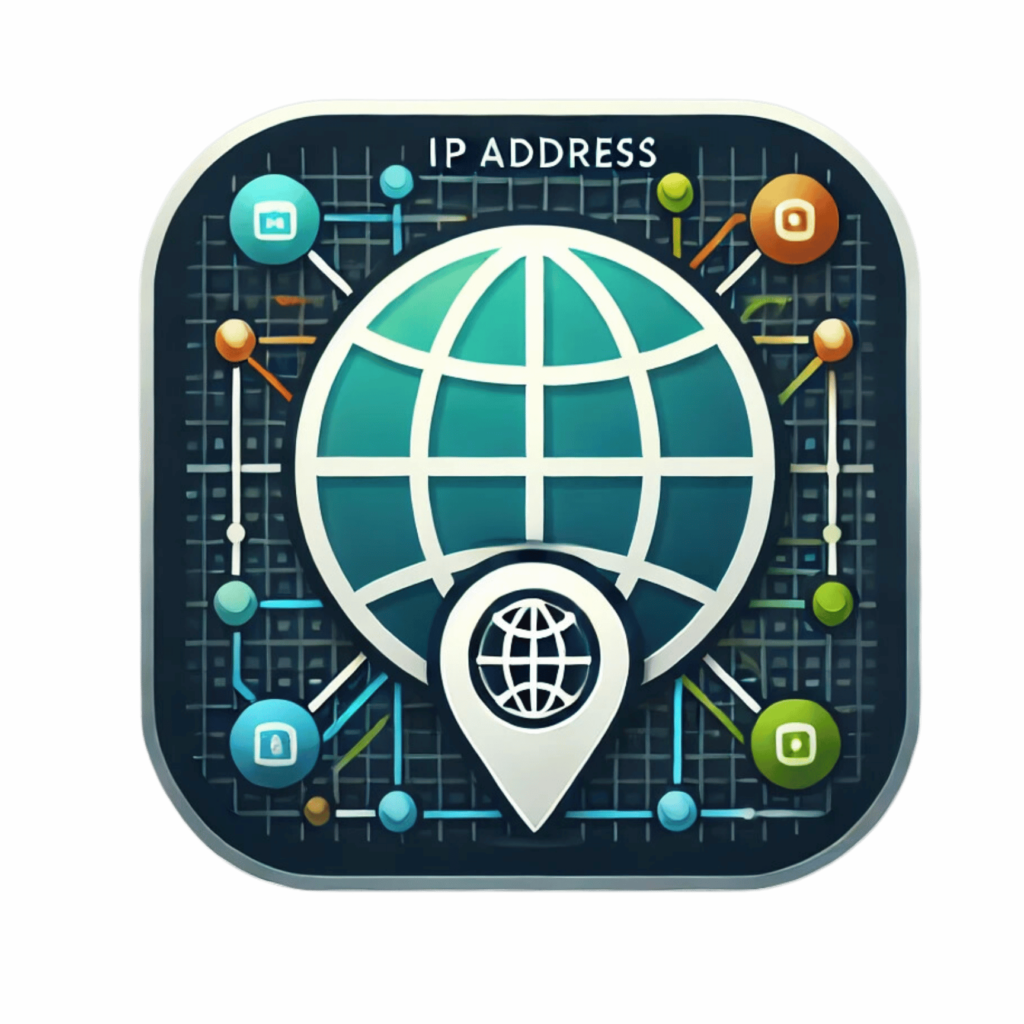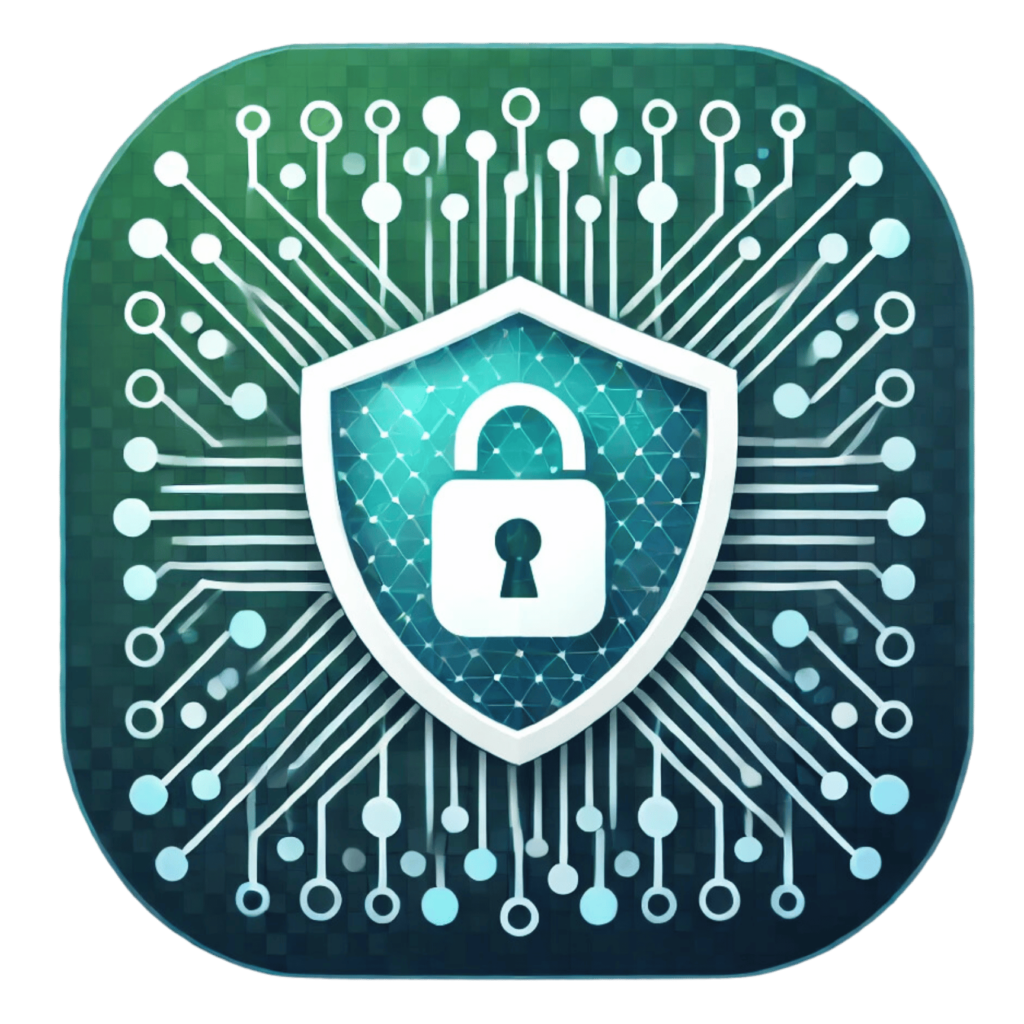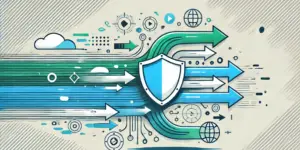Imagine this: you’re online, running your business, or maybe just scrolling through social media, and someone warns you, “Your IP address has been exposed!” Sounds ominous, right? The immediate reaction? Panic. Suddenly, you’re envisioning hackers draining your bank account, stealing your identity, or worse—shutting down your business.
But here’s the thing: most of what people think someone can do with an IP address? It’s wrong.
In today’s hyperconnected world, understanding cybersecurity best practices isn’t just a buzzword—it’s essential. Businesses lose an estimated $4.35 million per data breach on average, according to IBM’s 2022 Data Breach Report. Yet, much of the fear around IP addresses stems from misinformation rather than facts.
This blog is here to clear the air. We’re going to tackle some of the most common myths about IP address exposure and provide actionable cybersecurity best practices. More importantly, we’ll show you what actually matters when it comes to protecting your identity and safeguarding your business online.
Here’s a spoiler: It’s not just about your IP address. It’s about understanding the bigger picture of cybersecurity. [And trust us, it’s simpler than it sounds.]
Ready? Let’s separate fact from fiction and arm you with the tools to protect your online presence—without the paranoia.

Understanding IP Addresses
To understand what’s fact and what’s fiction, we first need to get one thing straight: What exactly is an IP address?
Think of your IP address as your device’s digital return address. It’s how websites, apps, and online services know where to send information. Every device connected to the internet—whether it’s your laptop, smartphone, or smart fridge—has one.
But here’s the catch: not all IP addresses are created equal.
Public vs. Private IP Addresses
- Public IP Address: This is the one assigned to you by your Internet Service Provider (ISP). It’s how the wider internet identifies your network. Think of it like the front door of your house.
- Private IP Address: These are used within your local network (e.g., your home Wi-Fi). They’re like the individual rooms in your house—less visible to the outside world.
What does this mean? Even if someone sees your public IP address, they’re not automatically inside your digital “house.” It’s not a direct invitation to hack your devices.
How IP Addresses Can Be Exposed
Now, let’s address the common ways your IP address can end up “out there”:
- Browsing Websites: Every time you visit a website, your public IP is shared so the site can send data back to your device.
- Emails: Emails sent from certain servers may include your IP address in the header.
- File Sharing and P2P Apps: Using torrenting platforms or file-sharing networks can expose your IP to others in the same network.
- Clicking Links: Tracking links embedded in ads or phishing emails can record your IP.
And here’s the big one: using unsecured public Wi-Fi can leave your IP address vulnerable to interception. According to Kaspersky, a staggering 25% of public Wi-Fi hotspots are unsecured.
What Can Someone Do With Your IP Address?
Here’s the short answer: Not as much as you think. But more on that in the next section.
For now, keep this in mind: while your IP address plays a critical role in your online activity, it’s just one piece of the puzzle of cybersecurity best practices. Effective cybersecurity is about the full picture, not just one pixel.
Ready for the first myth? Let’s dive in.

Myth 1: Knowing Your IP Address Lets Someone Hack You
Let’s get this out of the way: an exposed IP address isn’t a direct ticket to getting hacked.
Sure, your IP address reveals some information—like your general location (usually the city or region)—and your ISP. But following cybersecurity best practices ensures that’s where it ends. It’s not a magical key to your bank account, nor does it instantly expose your computer to hackers.
What Hackers Can’t Do with Just Your IP
- They can’t access your device or files without additional vulnerabilities (like open ports or outdated software).
- They can’t steal your passwords, payment info, or private data directly from your IP.
Here’s why: Modern internet routers and firewalls block unauthorized access by default. Unless you’ve intentionally left a door open (e.g., by failing to secure your router), adhering to cybersecurity best practices ensures hackers won’t find much to work with just by knowing your IP.
What They Might Be Able to Do
Let’s not sugarcoat it: there are scenarios where having your IP address could pose a risk:
- Targeted DDoS Attacks: A distributed denial-of-service (DDoS) attack overwhelms your network, making it unusable. This is rare for personal users but can happen to businesses or gamers.
- ISP Abuse: In extreme cases, someone could report illegal activity using your IP. (This is why securing your connection is crucial.)
But here’s the good news: simple steps like using a VPN or proxies can neutralize most of these risks. A VPN masks your IP address, routing your traffic through a secure server, so your real location stays hidden.
The Numbers Don’t Lie
According to a study by Symantec, 78% of cyberattacks exploit vulnerabilities in outdated software or user error—not IP addresses.
So, is someone hacking you just because they saw your IP? Unlikely. What matters more is ensuring your devices are updated, your passwords are strong, and your connection is secure.
On to the next myth. This one’s even juicier.

Myth 2: A VPN or Proxy Is Overkill for Protecting Your IP Address
Let’s cut to the chase: using a VPN or proxy isn’t overkill—it’s smart.
If you think your IP address alone doesn’t need protection, consider this: your IP address is like your digital fingerprint. It’s not just about what people can’t do with it. It’s also about what they can. And what they can do is track you.
The Reality of IP Tracking
Advertisers, data brokers, and even some websites use your IP address to build a profile about you—something cybersecurity best practices can help prevent.
- Your browsing habits.
- Your approximate location.
- The times you’re most active online.
Over time, this data turns into a detailed digital dossier. Creepy? Absolutely. Harmful? Potentially. If this data ends up in the wrong hands, it can be sold, misused, or even leveraged for phishing attacks.
Why VPNs and Proxies Are Essential
A VPN (Virtual Private Network) encrypts your internet traffic and masks your IP address. Proxies, like IPBurger’s residential or mobile proxies, route your connection through a different IP, giving you a layer of anonymity. The result?
- Your real IP stays hidden. No one can track your location or activity.
- You bypass geo-restrictions. Access content or run business operations in regions otherwise unavailable.
- You avoid targeted ads. No more creepy reminders that someone knows you were shopping for sneakers last night.
Businesses and Individuals Need This More Than Ever
For businesses, proxies are critical for maintaining competitive advantages while aligning with cybersecurity best practices. Whether you’re conducting SEO research, running localized ad campaigns, or monitoring competitor pricing, proxies ensure you can operate without being flagged or blocked.
For individuals, it’s about privacy. Over 64% of internet users worry about how their data is being collected and used, according to Pew Research Center.
How IPBurger Fits In
IPBurger’s proxies and VPN solutions are designed to protect both individuals and businesses without slowing down your connection. Whether you need rotating residential proxies or a dedicated VPN for sensitive operations, IPBurger has the tools to keep your IP safe—and your activity private.
Bottom line? Using a VPN or proxy isn’t just about avoiding “overkill.” It’s about future-proofing your privacy in a world that’s becoming increasingly invasive.
Now, let’s tackle another myth that’s costing businesses big time.

Myth 3: Changing Your IP Address Frequently Is Pointless
Some people argue that changing your IP address frequently is unnecessary, claiming it’s like “changing your license plate every week.” But here’s the thing: in today’s digital landscape, staying static makes you a target.
Why a Static IP Can Be Risky
When you consistently use the same IP address, you’re leaving a trail. Over time, this trail can reveal patterns that expose you to:
- IP Bans: Websites or services may block your IP if you trigger security systems (even accidentally).
- Tracking: Advertisers and data brokers thrive on consistency—they use static IPs to link your activity across devices and platforms.
- Targeted Cyberattacks: Hackers can exploit vulnerabilities tied to IPs that are active for extended periods.
For businesses, the stakes are even higher. Running multiple accounts or campaigns from a single IP can flag suspicious activity, leading to account bans or throttling.
The Advantage of Rotating IPs
Rotating IP addresses—or using proxies that cycle through a pool of IPs—offers key advantages:
- Stay Anonymous: Each session appears to originate from a new IP, making it nearly impossible to track your activity.
- Bypass Restrictions: Avoid bans and CAPTCHAs when testing websites, scraping data, or accessing geo-restricted content.
- Enhance Security: Even if one IP is compromised, the rotation protects your subsequent connections.
According to a study by Cybersecurity Ventures, 43% of cyberattacks target small businesses, many of which don’t use advanced IP rotation or masking tools.
IPBurger’s Rotating Proxies: A Seamless Solution
IPBurger offers rotating residential and mobile proxies tailored for individuals and businesses. With access to millions of ethically sourced IPs in 195+ countries, you can:
- Test websites as if you’re browsing from a specific city or region.
- Monitor competitors without revealing your identity.
- Scale operations with unlimited concurrent sessions.
Whether you’re running localized campaigns or safeguarding sensitive research, rotating proxies give you the flexibility and security you need.
The Bigger Picture
Changing your IP frequently isn’t just about avoiding bans or ads. It’s one of the cybersecurity best practices that helps you reclaim your online freedom in a world where being static makes you vulnerable. It’s about reclaiming your online freedom in a world where being static makes you vulnerable.
Up next: Let’s tackle one final myth that could save your business thousands.

Myth 4: Cybersecurity Is Too Expensive for Small Businesses
Here’s a dangerous misconception: “Only big companies need to worry about cybersecurity.” The truth? Cyberattacks don’t discriminate.
In fact, 43% of cyberattacks target small businesses, yet only 14% are prepared to defend against them. The cost of inaction? Devastating. The average small business spends over $25,000 recovering from a single cyberattack, not to mention the reputational damage.
Why Small Businesses Are Easy Targets
Hackers know small businesses often lack the resources to implement cybersecurity best practices. This makes them an easier—and more lucrative—target. This makes them an easier—and more lucrative—target. Here’s why:
- Outdated Systems: Many small businesses rely on older software that’s riddled with vulnerabilities.
- Weak IP Security: Static IPs and unsecured connections leave businesses open to data theft or DDoS attacks.
- Limited Awareness: Many small business owners underestimate the risks of exposed IP addresses and unsecured networks.
Affordable Solutions That Work
The good news? Cybersecurity doesn’t have to break the bank. Tools like proxies and VPNs offer affordable, scalable protection.
Here’s how they help:
- Proxies for Business Operations: Mask your IP to prevent tracking, avoid bans, and scale operations securely.
- VPNs for Remote Teams: Encrypt traffic for employees working from home or on public Wi-Fi.
- Rotating IPs for Testing and Monitoring: Run campaigns, test websites, or conduct market research without getting flagged.
A report from Cybersecurity Ventures predicts that global spending on cybersecurity will exceed $1.75 trillion by 2025. The takeaway? Investing in cybersecurity tools isn’t just smart—it’s becoming standard practice.
How IPBurger Supports Small Businesses
At IPBurger, we understand that small businesses need powerful tools without enterprise-level costs. That’s why we offer:
- Flexible Plans: Tailored for businesses of all sizes, with no hidden fees.
- Comprehensive Proxy Solutions: Access ethically sourced residential, mobile, and rotating proxies.
- Unmatched Reliability: 99.9% uptime to keep your operations running smoothly.
Whether you’re running an e-commerce store, managing ads, or conducting competitor analysis, IPBurger provides affordable solutions to safeguard your business.
Think Cybersecurity Is Too Expensive? Think Again.
Cybersecurity isn’t a luxury—it’s a necessity. And with the right tools, even the smallest businesses can protect themselves from the growing threats of today’s digital world.
Wrapping It All Up
Cybersecurity myths often stem from misunderstanding, fear, or outdated information. Let’s recap the truths we’ve uncovered:
- Knowing your IP address doesn’t instantly expose you to hackers—but it’s still smart to mask it.
- VPNs and proxies aren’t overkill—they’re essentials for protecting your privacy and operations.
- Changing your IP frequently helps you stay anonymous, bypass restrictions, and avoid tracking.
- Cybersecurity is affordable and critical for businesses of all sizes—small businesses included.
In a world where threats evolve daily, protecting your IP and identity is about adopting cybersecurity best practices to stay proactive, not reactive. Tools like IPBurger’s proxies and VPNs make safeguarding your digital presence simple and accessible, whether you’re an individual user or running a business.
Take the next step. Explore IPBurger’s proxy solutions and start protecting your online identity today.
FAQs
1. Why should I care about protecting my IP address?
Your IP address is like your digital fingerprint—it reveals your general location and can be used for tracking or malicious activities like DDoS attacks. Protecting it ensures your online privacy, prevents data profiling by advertisers, and keeps your devices and business safe. Simple tools like proxies or VPNs can make a big difference.
2. Are proxies and VPNs necessary for small businesses?
Absolutely. Small businesses are prime targets for cyberattacks due to limited defenses. Proxies and VPNs offer cost-effective ways to mask IPs, secure sensitive data, and protect operations. These tools aren’t just for privacy—they help businesses scale safely by avoiding bans, tracking, and online threats.
3. How does IPBurger help with cybersecurity?
IPBurger offers powerful proxy and VPN solutions to safeguard individuals and businesses. With features like rotating IPs, global coverage, and 99.9% uptime, IPBurger helps protect your identity, bypass restrictions, and ensure secure online operations. Whether you’re browsing, testing, or managing campaigns, IPBurger makes cybersecurity simple and effective.



